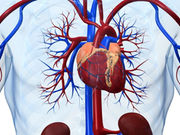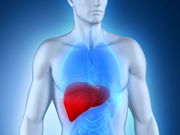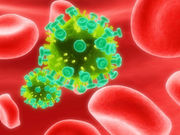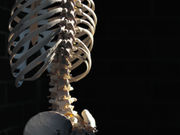Adherence to Healthy Diet May Cut Effects of Genetics on Obesity
Long-term, improved diet quality benefits weight control in those with high genetic risk of obesity
Acetaminophen Use in Pregnancy Linked to Language Delay
Number of APAP tablets, urinary APAP concentration linked to increased odds of language delay in girls
Closure of Patent Foramen Ovale Cuts Recurrent Stroke/TIA Risk
Reviews demonstrate reduction in recurrent stroke risk after percutaneous transcatheter PFO closure
Core Muscle Weakness Increases Spinal Loading, Back Injuries
Deep core muscle weakness linked to increase in peak anterior shear loading on all lumbar vertebrae
Race, Education Level Predict CRT in Very Elderly With NSCLC
In elderly with stage III lung cancer, black race, lower-educated county tied to not receiving care
Hepatic Fat Accumulation May Have Causal Role in Liver Disease
Impact of genetic variants on liver damage proportional to effect on hepatic fat accumulation
Week’s Worth of HIV Meds in a Single-Dose Capsule Feasible
Oral platform delivers three antiretrovirals for up to seven days after single administration
Idalopirdine May Not Improve Cognition in Mild Alzheimer’s
Findings from three randomized trials show no improvement in cognition vs. placebo over 24 weeks
USPSTF Questions Adolescent Idiopathic Scoliosis Screening
Finds insufficient evidence on balance of benefits and harms of screening asymptomatic 10- to 18-year-olds
Screening, Therapy Effect Varies by Breast CA Molecular Subtype
Reductions in breast cancer mortality linked to screening and treatment, but associations vary














